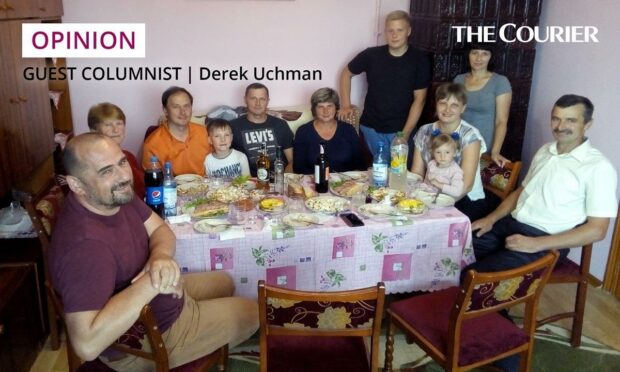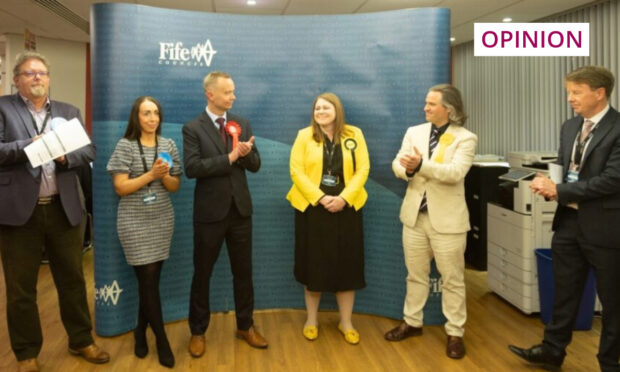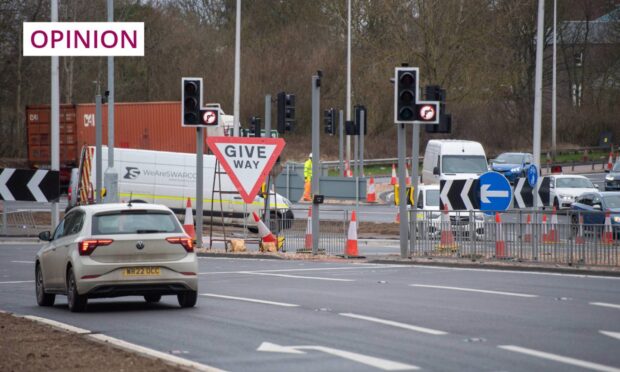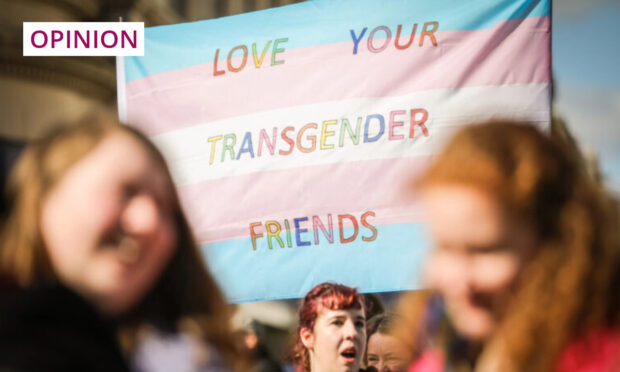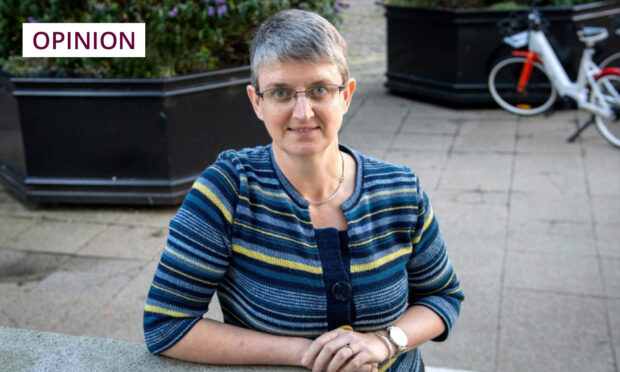I am British, and hold a British passport. But I’m also half Ukrainian.
My father was born in a village called Szybalin, roughly 100km southeast of Lviv.
Between the wars, it was part of Poland, and in 1939 my father (who had just been conscripted into the Polish army) was taken by the Russians to a hard labour camp in the Urals, where he spent 18 months witnessing the daily atrocity of fellow prisoners starving or freezing to death.
Somehow he survived, and was eventually transferred to Scotland to be part of the Polish Free Forces.
After the war, and terrified of returning to the USSR, he settled in Fife.
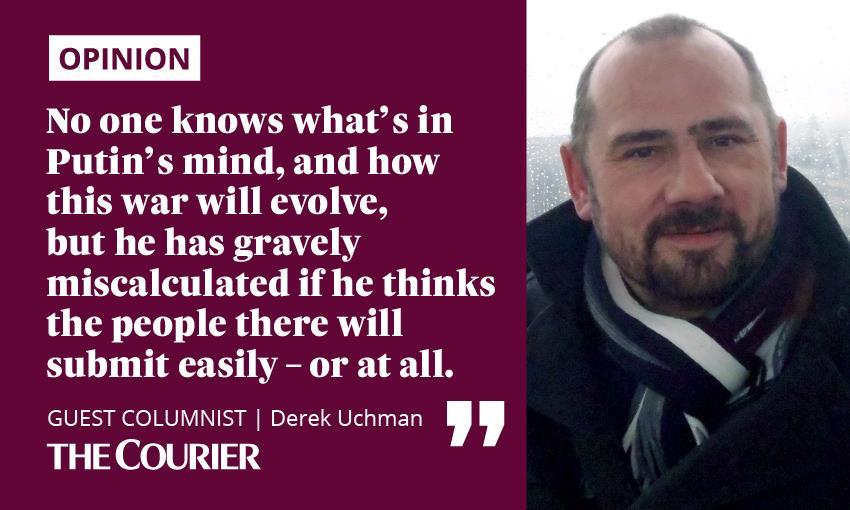
Connections with his family in Ukraine (he had seven siblings) were sparse, and he died aged 91.
From that point, I lost contact with Szybalin, until I received a Facebook message in 2018 from a cousin twice-removed, who said she was living in the house my father was born in, and asked if I would like to come to visit.
My son Janek and I packed our bags and flew out to Lviv, where were driven to Szybalin.
The next eight days were a whirlwind of sight-seeing and meeting relatives.
A lot of relatives.
Some days we visited four or five houses in an afternoon (mostly in the village), where there were gatherings of relatives I hadn’t known before.
There was no shortage of photos, and vodka.
Ukrainians possess generosity – and long memories
The people in Ukraine are far from wealthy by our standards, but each family laid out a table covered with food and drink.
Good times were had and I wasn’t allowed to spend any money.
Everything was on them.
“Put your wallet away. Your money is no good here,” I was told.
I soon learned Ukrainians are generous to a fault.
My ties to my new-found family grew immensely, along with my knowledge of Ukraine.
Nearly every village and town has a war memorial.
However, the years aren’t 1939-45. They are 1943-51.
These were the years of a guerrilla war against Russia.
Ukraine has already endured enemy occupation
Little is known about it here in the West. But the people of Ukraine spent eight years trying to evict one of the largest armies in the world from their country.
They didn’t succeed, of course, and the following decades were lived under a dictatorship.
Whenever I hear that Russia has legitimate interests in #Ukraine, it makes me wonder what legitimate interest can justify shelling homes and residential areas, killing civilians. This is Nikolayev, just a moment ago.
This is a real tragedy. Putin must be stopped pic.twitter.com/v2ukx87mkr
— Hanna Liubakova (@HannaLiubakova) March 7, 2022
Freedom finally came in 1991 with the collapse of the Soviet Union.
Far from being “one people” (as Putin put it), the Ukrainians (as we all now know) are intensely patriotic.
Theirs is a very different identity, which has been shaped – ironically – by the collective memory of the damage caused by their neighbour.
Starved by Stalin – and still they didn’t submit
One particularly defining moment was the Great Famine of 1932-33.
Called the Holodomor, the cause of it was intentional, man-made and carried out on the orders of Stalin.
All crops, livestock and food were confiscated down to the last loaf of bread and sheaf of wheat, resulting in up to 10 million deaths.
People ate grass and there were cases of cannibalism.
Why did Stalin do this?
Because he feared Ukrainian nationalism, and wanted to subjugate the population.
It is has now been recognised as an act of genocide – a deliberate attempt at eradicating an entire people.
In her book, Borderland: A Journey Through The History of Ukraine, Anna Reid described the country prior to Holodomor as being similar to Austria in terms of prosperity and appearance.
She wrote that the damage caused was so severe, and decimated such a large proportion of the country, that it has not properly recovered even to this day, 90 years on.
Putin has misjudged Ukraine if he thinks the people will give in
Another landmark in Ukraine’s history was taking place while I visited – the war in the Donbas region.
We spoke about it – a lot – and yet no one referred to “separatists” or “rebels”.
This is now genocidal thinking. The "bad" Ukrainians have to be eliminated to make way for "good" Russified Ukrainians. Exactly what Stalin was thinking at the time of the Holodomor https://t.co/BZAPAwzsrL
— Anne Applebaum (@anneapplebaum) March 3, 2022
The talk was of fighting Russia, and Putin.
Several people from Szybalin (which is about as far away as you can get from the region) were in the army fighting.
Now, of course, the threat from Russia is of a different magnitude.
My family in Ukraine are (so far) quite distant from the conflict, but are doing what they can to help refugees by giving them food and finding accommodation as they move to the Polish border.
No-one knows what’s in Putin’s mind, and how this war will evolve, but he has gravely miscalculated if he thinks the people there will submit easily – or at all.
“We will fight to the last drop of blood,” I was told in a recent message from Szybalin.
That sounds like a cliché, a phrase that might be used too easily in times of war. But I believe it.
If anything — through the Holodomor, the occupation by the USSR, the fighting in Donbas — the Ukrainian people have become more patriotic, and that is partly caused by the desire to be free of the interference and suffering brought on by its neighbour.
Should Putin’s military might succeed (and there is no guarantee it will), he will be faced with a guerrilla war which will last for years and possibly decades, causing immense long-term damage not just to Ukraine, but also Russia itself.
Derek Uchman is a journalist from Monifieth.
